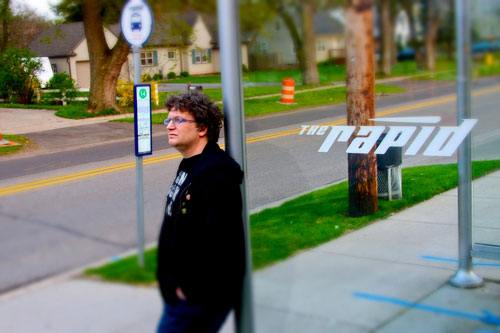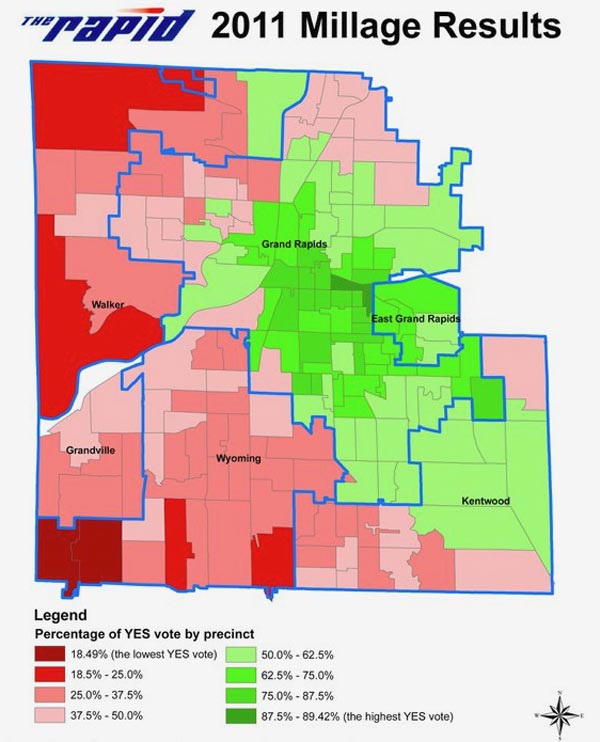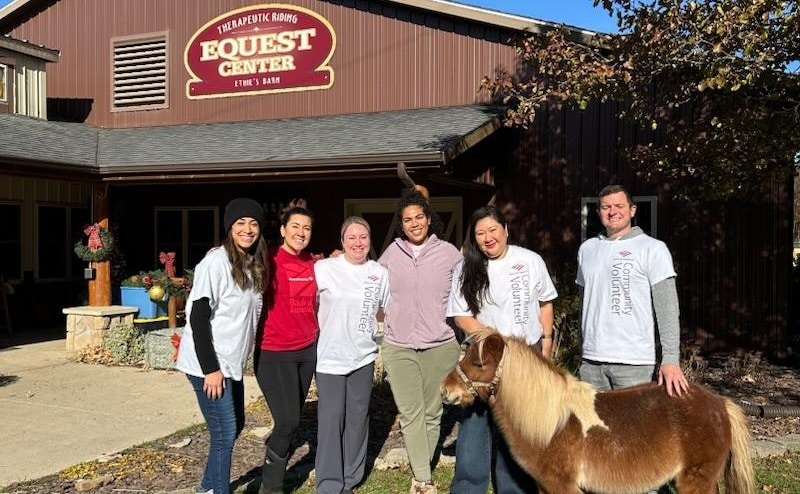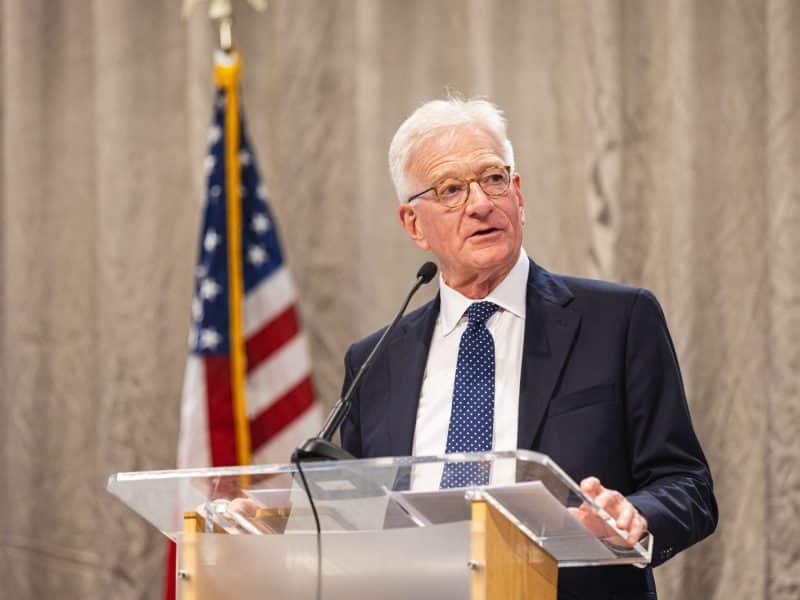G-Sync: A Tale (or a Question) of Two Cities
The future needs all of us but with a slim 126 vote win on The Rapid millage, many are confused by the election results and are wondering why the gospel of inclusion found throughout most modern cities including Grand Rapids has not reached our outer suburban neighbors. Tommy Allen asks a lot of questions that may not have easy answers in pursuit of a more perfect union within West Michigan and beyond.
“It was the best of times, it was the worst of times it was the age of wisdom, it was the age of foolishness, it was the epoch of belief, it was the epoch of incredulity, it was the season of Light, it was the season of Darkness, it was the spring of hope, it was the winter of despair, we had everything before us, we had nothing before us…” – Charles Dickens, A Tale of Two Cities
A greater writer may have avoided the trappings of quoting Dickens, but in light of the May 3 Rapid millage in West Michigan these immortal opening words from A Tale of Two Cities contain a vagueness that actually seems appropriate when referencing the win that sure feels less like one when I look at the map of how we voted in West Michigan.
For starters, I cannot recall a more exciting election night in my life where it came down to a nail-biting conclusion with a win squeaked out by just 126 votes.
Since I was traveling out of town and had voted with an absentee ballot, to monitor the results, I had to catch the returns via Twitter.
All the factors that one would expect for an easy victory were in place with gas prices heading upward of $4.20 a gallon and a community generating plenty of fuss about how they were looking at changing their driving habits. It seemed like we would see a big win within the interurban group that makes up The Rapid.
As the 140-characters-or-less results arrived from a variety of Twitter sources, including the GRPress’ Kyla King (@KYLking), who put all other media sources to shame with her excellent and thrilling coverage, it was clear two tales were emerging about the millage and it was one that was not being reflected in other communities across the state.
Of the five major transit millage results, we would learn that three (Benzie County, Holland and Kalkaska) would win by a landslide and one (Grand Haven) by a 2-to-1 margin.
But the fifth, Grand Rapids, a place known throughout its history for being an incubator for innovation, narrowly won the day by just 126 votes.
In a night of landslides, Grand Rapids was sharply divided, much like the rest of the country these days on what should have been a fairly innocuous issue — that is public transportation.
What we were left with the days following has been a sense of wondering how other communities were able to “get it” with record numbers of upwards of 70% voting yes while we essentially created a 50 plus one win.
I had pretty much moved on until a map began circulating this week about how we voted seemed to only incite people to make inflammatory statements that break down communication like, “I won’t be shopping in Grandville anymore,” to “We will just stop tipping young people when we dine out in downtown Grand Rapids.” Clearly, people (present writer included) are very frustrated.
But where do we go when it is so clear that we are so polarized over this issue?
What I think was missing (and probably, as a friend suggests, due to a lack of time this election cycle) was the education on this issue to the regions that were so crippling in their No votes.
And just so you do not think I am squarely beating up on Friends of Transit, I am also talking about the reality of city mayoral leadership where those who stood up to support it in the beginning were strangely AWOL when it came time to really campaign for this issue to their people. It was like they went underground into a witness protection program.
The Rapid is a shining example of how a collaboration project between cities can work and yet, when this collaboration needed a strong unified front during the most crucial phases of the 20-year, public-driven plan, their absence on this issue reflected in an extraordinary amount of No votes. Leadership failure was everywhere a No vote ruled the ballot.
Regardless of the numbers gained for the win, each one of these millages passing indicates the people’s desire for public transportation to move into this new century. (It is worth pointing out that public transportation is older than the automobile, so chew on that, values drummers.)
In an era where people love to spout off “the people have spoken,” it is ironic that in Lansing, some people are still not listening as evident by the chair of the House Transportation Committee’s Representative Dave Agema (R-Grandville) who convinced his fellow members to cut the state’s bus budget, even though the people of Michigan voted overwhelmingly to support greater movement in this area.
All this happened in a week and yet the results of this week’s events will be felt for years to come.
I am willing to accept the win and move on, but I am not celebrating or happy with this narrow margin since it shows that in winning, we failed.
Education on the issues must be at the core of what we do going forward if we, as a community, hope to compete on the world stage. Already our state is seen as a risk with many looking to invest here. Let’s not make matters worse by doing things like dismantling our region’s character to be open to dialogue on the issues.
Yes, I might be a dreamer in hoping that the “no voter” will convert to believers in how public transportation benefits us all. But as I walked the music video taping route of the Sunday Grand Rapids lipdub with Rob Bliss, he said the most beautiful thing, which is probably what I will subscribe to when my self-flogging over this issue begins in the future. “But it passed, so there.”
So a win is a win no matter how slim, but at the end of the day, education on the issues still needs to be our goal in the pursuit of that win for us ….for all of us.
The Future Needs All of Us. (All. Of. Us.)
Tommy Allen
Lifestyle Editor
RapidGSync@gmail.com
Click here to continue to this week’s G-Sync events.
Lifestyle Editor’s Note: On Friday, I will be showcasing a new series of artworks that I have curated with Richard App of the Richard App Gallery in East Hills Neighborhood. The opening begins at 5 p.m.











